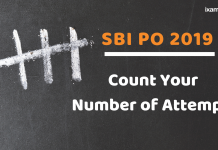The choice between pursuing a career in the Reserve Bank of India (RBI) as a Grade B officer and opting for other government or private sector jobs is a pivotal decision for many aspirants in India. The allure of RBI Grade B and other banking exams lies in the attractive facilities they offer and the job security they provide.
RBI, the country’s premier financial institution, holds a distinguished status, making the RBI Grade B position highly coveted. Candidates’ interest in this role is fueled by the prestige associated with working in the central bank and the comprehensive benefits and stability it offers. Job security is a paramount consideration for individuals seeking long-term career prospects, and RBI Grade B, along with other government jobs, stands out in this regard.
In this comparative analysis, we delve into the nuanced differences between RBI Grade B and other banking exams, shedding light on the unique facets that make each option distinctive. Government jobs, known for their stability and various perks, are often sought after by candidates seeking a secure and structured career path. On the other hand, private sector jobs come with their own advantages, including the potential for rapid career progression and diverse opportunities.
This exploration aims to assist candidates in making an informed decision by providing insights into the intricacies of RBI Grade B and other banking exams, considering factors such as job responsibilities, growth prospects, and overall work environment. As aspirants navigate the labyrinth of career choices, this analysis will help them chart a course that aligns with their aspirations and professional goals.

Why Banking Jobs
Banking jobs, including the prestigious position of RBI Grade B Officer, hold a distinct allure in the employment landscape, drawing a plethora of aspirants for several compelling reasons. Firstly, the banking sector offers a unique blend of stability and security. Jobs in banking, particularly those with the Reserve Bank of India (RBI) such as the Grade B Officer, provide employees with financial stability and a robust support system, even during economic volatility.
Secondly, the scope for career progression in banking is noteworthy. RBI Grade B Officer and other banking roles often present well-defined career paths, allowing individuals to climb the professional ladder through experience, skills, and performance. This clear trajectory, coupled with regular training programs and opportunities for skill enhancement, makes banking an attractive choice for those seeking long-term growth and development.
Moreover, banking jobs offer diverse roles and responsibilities, catering to individuals with varied skill sets. From finance and risk management to customer relations and technological innovation, the banking sector encompasses a broad spectrum of functions, allowing employees to explore and specialize in areas that align with their expertise and interests.
The banking industry’s emphasis on innovation and adaptability makes it an exciting field. Rapid technological advancements and evolving financial landscapes create a dynamic environment where professionals, including RBI Grade B Officers, are constantly challenged to stay abreast of industry trends and contribute to innovative solutions.
In essence, the appeal of banking jobs, epitomized by roles like the RBI Grade B Officer, lies in the combination of job security, career advancement opportunities, diversity of roles, and the industry’s dynamic nature. Aspirants are drawn to these positions for the promise of a fulfilling and stable career that aligns with their aspirations and professional ambitions.
RBI Grade B: Exam Pattern and Syllabus
Now that the RBI Grade B 2023 recruitment cycle is over, the attention turns towards the highly anticipated RBI Grade B 2024 exam notification, which is pending. However, the insights from the previous year’s notification shed light on the exam pattern and syllabus. Notably, the 2023 notification introduced changes in the Phase 2 syllabus, emphasizing the need for awareness. This anticipation period is an ideal opportunity to acquaint ourselves with the expected RBI Grade B exam pattern and syllabus. By exploring specifics such as duration, question count, subjects, and negative marking, aspirants can lay a strong foundation for a well-planned strategy, ensuring confidence and clarity in approaching the upcoming exam. Stay tuned for a breakdown of exam nuances and insights for adequate preparation.
The RBI Grade B Prelims exam 2024 is expected to include General Awareness, English Language, Reasoning, and Quantitative Aptitude tests. A thorough grasp of the entire syllabus for these subjects is crucial for success in Phase 1, with particular emphasis on the weightage of the General Awareness section. Aspiring candidates are advised to consult BeePedia, a comprehensive resource covering general awareness content requirements. Successful candidates in the Prelims move on to the RBI Grade B Mains Exam, which features three papers: Economics and Social Issues, Descriptive English, and Finance Management. The Mains Exam, conducted in multiple shifts, includes objective and descriptive components totaling 300 marks and is decisive in determining candidates’ eligibility for the esteemed RBI Grade B position. Look at the RBI Grade B Exam Pattern in the table below:
| Phases | Exam Type | Marks | Duration | Exam Language |
| Phase 1 (Prelims) | Objective | 200 marks | 2 hours | Bilingual (Except the test for English language.) |
| Phase 2 (Mains) | Paper 1 (Objective & Descriptive) | 100 marks | 30 minutes (Objective) & 1 hour 30 minutes (Descriptive) | |
| Paper 2 (Writing Skills) | 100 marks | 1 hour 30 minutes | ||
| Paper 3 (Objective & Descriptive) | 100 marks | Composite time of 2 hours | ||
| Phase 3 (Interview) | Interview | 75 marks | ||
RBI Grade B: Perks and Benefits
The anticipated RBI Grade B Officer salary for 2024 will remain consistent with the previous year’s structure. Recognized as one of the most sought-after roles in the public sector, the RBI Grade B Officer position offers generous remuneration, making it a standout choice among job seekers in India. Look at the RBI Grade B Salary Package in detail below-
- Dearness Allowance (DA): Dearness Allowance, constituting 43% of the basic salary, is a key component of the revised salary structure for RBI Grade B Officers. This allowance is crucial in ensuring the officer’s income is adjusted to account for inflation and rising living costs.
- House Rent Allowance (HRA): RBI Grade B Officers are entitled to House Rent Allowance (HRA), with accommodation provided for those relocating. For those without bank-provided housing, the HRA is set at 15% of the Basic Pay, offering support for living expenses in a new city.
- Conveyance Allowance (CA): Conveyance Allowance caters to the daily transportation costs of RBI Grade B Officers commuting from home to office. This allowance varies based on the location, with an additional Rs. 14,000 provided for officers stationed in Mumbai, along with extra petrol for residents of select cities.
- Education Allowance: Selected officers may receive an Education Allowance for their families, with an annual reimbursement of up to Rs. 4,000 per month, easing the financial burden of educational expenses.
- Medical Allowance: The Medical Allowance, capped at Rs. 4,000, covers health-related expenses for RBI Grade B Officers and their dependents, ensuring comprehensive healthcare support.
- Leave Fare Concession Travel (LFC): Under LFC, officers are granted around Rs. 1,00,000 every two years for travel, enabling them and their dependents to explore destinations worldwide.
- Fuel Allowance: The Fuel Allowance allows officers to claim up to 150 liters of fuel per month, offering financial relief for commuting purposes.
- Maid Allowance, Mobile Allowance, and Sodexo Coupons: Additional perks include allowances for maid services, mobile usage, and Sodexo coupons worth Rs. 2,000, which can be spent on food and groceries. These benefits enhance the overall well-being of RBI Grade B Officers.
- Briefcase Allowance and Spectacles Allowance: Officers at Grade A and B levels are eligible for a Briefcase Allowance of up to Rs. 7,000, reimbursed every three years. Moreover, a Spectacles Allowance of Rs. 7,000 ensures financial support for eyewear needs.
- Bank Loan Facility and Pension: RBI Grade B Officers can benefit from a Bank Loan Facility with favorable interest rates for housing and vehicles. Additionally, the officers are entitled to a pension upon retirement, providing financial security in their later years.
- Increment Structure: The salary increment structure over the years involves regular increases, with the maximum basic pay reaching Rs. 99,750 after 16 years of service. This occurs without promotions, showcasing the progressive nature of the compensation structure.
- Career Progression and Promotions: Besides salary, career progression, and promotions are pivotal in attracting applicants. The ‘Grade B’ Officers undergo promotions with updated designations, ensuring ongoing salary growth and professional advancement.
Regular Banking Jobs: Recruitment Process
The recruitment process for regular banking jobs, encompassing public and private sectors, typically begins with a detailed official notification. Leading public sector banks such as the State Bank of India (SBI) and the Institute of Banking Personnel Selection (IBPS) announce vacancies, outlining eligibility criteria and important dates. Private banks often release recruitment notifications through their official websites or job portals.
- Online Preliminary Examination: The initial phase involves an Online Preliminary Examination designed to assess candidates’ proficiency in the English language, quantitative aptitude, and reasoning. IBPS conducts preliminary exams for various positions, including Probationary Officers (PO) and Clerks, while SBI follows a similar pattern for its respective roles.
- Main Examination: Successful candidates from the preliminary round proceed to the Main Examination, a more comprehensive assessment. The Main Exam delves deeper into subjects relevant to banking roles, including data analysis, financial awareness, and professional knowledge.
- Interview and Group Discussion: Candidates qualifying the Main Exam often face a round of interviews and group discussions. This phase evaluates their technical knowledge, communication skills, problem-solving abilities, and general awareness. Private banks may have similar rounds tailored to their specific requirements.
- Document Verification and Medical Examination: Following the interview, candidates undergo document verification to ensure the accuracy of the information provided. Some banks, including public and private entities, may also conduct a medical examination to ascertain the candidate’s fitness for the role.
- Provisional Allotment: The final step involves provisional allotment, where successful candidates receive job offers based on their performance in the entire recruitment process. Public sector banks like SBI and IBPS list candidates selected for various branches and positions.
- Training and Onboarding: Once candidates accept the offer, they undergo training programs tailored to their respective roles. This phase familiarizes them with the bank’s policies, procedures, and core values. Both public and private banks invest in comprehensive onboarding processes to ensure new hires seamlessly integrate into their work environments.
The recruitment process for regular banking jobs involves a series of well-structured steps, from initial notifications to final allotment. Public sector banks like SBI and IBPS and private banks adhere to a systematic approach to select competent individuals who can contribute effectively to the banking industry.
Regular Banking Jobs: Perks and Benefits
Embarking on a career in the banking sector in India offers a trove of perks that make it a coveted profession. First and foremost, bankers enjoy unmatched remuneration, with competitive salaries, substantial bonuses, and enticing incentives based on performance and seniority. The dynamic nature of the banking industry ensures creative challenges, with roles evolving alongside emerging business trends and technological advancements, especially in Internet and mobile banking.
Job security is a paramount benefit, particularly in public sector banks, providing professionals the stability to excel without the looming threat of downsizing. The sector offers many job profiles, catering to diverse interests and educational backgrounds, ranging from Financial Analyst to Tech+Finance roles like Specialist IT Officer.
Bankers also relish numerous travel options, with postings across India and sometimes abroad, providing an ideal avenue for those with a penchant for exploration. Job satisfaction is intrinsic to banking careers, characterized by lucrative perks, exciting bonuses, and fulfilling challenges. Additionally, serving the public and contributing to financial government schemes offer a sense of social impact and respect.
The estimated salary for banking professionals varies based on roles and experience, with entry-level positions starting around Rs. 4-6 lakhs per annum and experienced professionals earning upwards of Rs. 10 lakhs per annum, excluding bonuses and incentives. A banking career promises financial rewards and an exciting, challenging, and socially impactful journey. If you are looking to establish a banking career, ixambee offers online courses for various banking exams along with free mock tests and an opportunity to practice with previous year papers.
RBI Grade B Vs. Other Banking Jobs: A Comparison
In navigating the diverse landscape of banking careers in India, the choice between the prestigious Reserve Bank of India (RBI) Grade B Officer position and other banking jobs presents a crucial decision for aspiring professionals. The RBI Grade B Officer role stands out for its unmatched reputation, rigorous selection process, and intellectually stimulating responsibilities in shaping monetary policies. On the other hand, various opportunities abound in public and private banks, each offering unique roles, competitive remuneration, and dynamic work environments. For a detailed comparison of these career paths, check the table below.
| RBI Grade B Officer | Other Banking Jobs |
| Prestigious position with unmatched reputation | Diverse array of opportunities in public and private banks |
| Rigorous selection process (Prelims, Mains, Interview, Group Discussion) | Varies recruitment processes, including exams, interviews, and discussions |
| Robust salary structure with Dearness Allowance, House Rent Allowance, and performance-based incentives | Competitive remuneration, though may not reach the pinnacle of RBI Grade B |
| Pivotal responsibilities in shaping monetary policies and managing financial stability | Dynamic work environment, career progression, and opportunities to specialize |
| Intellectually stimulating career choice | Roles range from Probationary Officer, Clerk to Investment Banking Analyst |
| Stability and lucrative compensation | Comprehensive banking experience with a chance to specialize |
Summing Up.
The choice between RBI Grade B and other banking jobs hinges on personal preferences and career aspirations. RBI Grade B offers unparalleled prestige and responsibilities, appealing to those seeking a distinguished career at the forefront of monetary policymaking. On the other hand, other banking jobs provide diverse opportunities and a dynamic work environment, catering to individuals with varied interests and ambitions within the banking sector. Both paths offer stability, financial rewards, and a chance to contribute significantly to the country’s financial landscape. Ultimately, the decision rests on the individual’s career goals and the aspects they prioritize in their professional journey.
To help you prepare 50% faster for competitive exams, ixamBee provides a free Mock Test Series and all the Current Affairs in English and Current Affairs in Hindi in the BeePedia capsules for GA Preparation. You can also get the latest updates for Bank PO, Bank Clerk, SSC, RBI Grade B, NABARD, and Other Government Jobs.
Also Read
How to Prepare for Government Exams
Why Aspirants Fail in Government Exams
Easy Tips and Tricks to Clear SEBI Grade A Exam 2024














